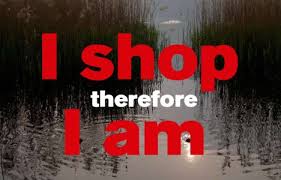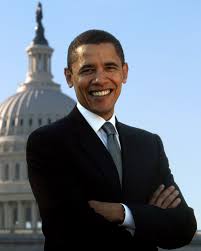January 23, 2009

To many observers in the US, 9/11 marked the end of civil action and what might be considered other half-actions in the fight against Islamic terrorists. Yet a Providence lawyer with McIntyre, Tate & Lynch has played a lead role in pursuing a different course, and he's talking about it on Monday. Bill Rodriguez reports:
Providence lawyer David J. Strachman, who has been fighting terrorists in US courts, has won damage judgments against the PLO and Hamas and their state sponsors. He will be giving a talk on the subject, "Suing Terrorists: Obtaining Justice for Terrorism Victims," on Monday, January 26 at 7 pm at the Rochambeau Branch Library (708 Hope Street, Providence).
Although the Antiterrorism Act permanently became a statute in 1991, it wasn't until 2000 that the first lawsuit was filed under it, brought by Strachman in US District Court in Providence. He was surprised to be the first, discovering that when he initially looked up the act. Typically, laws in statute books are followed by cases that interpret or utilize the statutes.
"This one was blank, and we said, 'Maybe this was repealed, maybe we are doing something wrong.' There were just no cases," Strachman says. "And that's basically 53 jurisdictions, federal jurisdictions."
He was arguing on behalf of the Ungar orphans, whose American parents had been shot by fundamentalist terrorists in Israel while driving home from a wedding, probably because the wife was at the wheel. The successful 2005 judgment resulted in significant assets of the PLO and the Palestinian Authority being attached in the United States and abroad.
What does he say to any who suggests that suing terrorists, in what might be called money for lives, is a half measure and not an adequate recourse?
"Well, I don't think suing terrorists is a substitute for states prosecuting and pursuing terrorists," Strachman says. "But when Congress created the antiterrorism act," one of the proponents said terrorist victims should "be able to join the fight against terrorism."
January 23, 2009

(Via Romenesko)
PARIS (AP) — The French state will help provide free newspaper subscriptions to teenagers for their 18th birthdays, President Nicolas Sarkozy announced Friday. But the bigger gift is for France's ailing print media.
Sarkozy also announced a ninefold rise in the state's support for newspaper deliveries and a doubling of its annual print advertising outlay amid a swelling industry crisis.
Sarkozy argued in a speech to publishers that the measures are needed because the global financial crisis has compounded woes for a sector already suffering from falling ad revenues and subscriptions.
In a speech to industry leaders, Sarkozy said it was legitimate for the state to consider the print media's economic situation.
"It is indeed its responsibility ... to make sure an independent, free and pluralistic press exists," he said.
January 23, 2009

As part of some special inaugural online material, entitled Our White House, there's a great interview with local wordsmith Tom LaFauci, who formerly served on the staff of Joe Biden.
Some excerpts:
Is the inaugural address high stakes? What is its historical significance and how does it differ from a state of the union address?
TSL: An inaugural address is a thematic speech setting the tone and tenor of an administration. It should blend poetry and political philosophy with a smattering of generalized policy without the weight of time limited statistics and detail. It should categorize challenges and opportunities and move the nation to reach for the stars. Inaugural addresses are, by nature, timeless and should be drafted with a sense of history in mind. A state of the union address, on the other hand, is a much more programmatic speech promoting specific policies and legislative goals that are time limited. An inaugural address speaks to generations while a state of the union address speaks to 535 members of Congress. Both are important speeches for any president, but state of the union messages tend to die a slow death in the Congressional Record; inaugural addresses, on the other hand, are remembered long after they are delivered. When read together, from George Washington’s first inaugural address to Barack Obama’s inaugural, we are given a unique glimpse into history through the hopes and aspirations of the forty-four presidents who have shaped this nation’s history. ....
What do you consider to be your best speech? Did you feel the speech accomplished what you set out to do?
TSL: I wouldn’t say I have a best speech, but one of the most challenging to write was a eulogy for Senator Joe Biden to deliver at the funeral of Senator Strom Thurmond. Neither Senator Biden nor I agreed with Strom’s politics, but, for many years, Senator Biden had served closely with Strom on the Judiciary Committee and they became friends. Strom occupied the offices adjacent to Biden’s in the Russell Senate Office Building, the oldest Senate office building just north of the Capitol on Constitution Avenue. In fact, Strom’s personal office was directly adjacent to mine. He had been a staunch segregationist early in his career and ran for president in 1948 as a Dixiecrat. He was a drafter of the 1956 Southern Manifesto against Brown vs. Board of Education. In 1957 he filibustered against the Civil Rights Act for twenty-four hours and eighteen minutes, the longest filibuster in Senate history. But over the years, Strom’s views had mellowed. When Senator Biden was asked to deliver the eulogy, he called me into his office and we looked at each other and wondered exactly how he could fashion a fitting tribute to a good friend with whom he so fundamentally disagreed. The final result was one of our best collaborative efforts. The theme was redemption, based on a story I will tell you later. Senator Biden spoke movingly about redemption and the power of one man to change.
As a speech writer, you do all the leg work, the creative work, then the person who delivers the speech gets all the credit. Is it hard writing something for which someone else gets the credit?
TSL: It is true that speechwriters are the most invisible staff members in Washington. They are often introduced merely as aides or special assistants. But, recognition aside, it has been an honor to work with some of the most extraordinary leaders in our nation on issues that have changed the course of history, an honor to have played even a small role in the great debates of our time. The personal satisfaction of being present for history is the speechwriter’s reward.
January 23, 2009
Cliff Montiero, president of the Providence chapter of the NAACP, says he may seek support from his national organization to bring legal action challenging the paucity of minorities in municipal public safety positions in some Rhode Island communities.
Montiero, who made the statement during a taping this morning of WPRI/WNAC-TV's Newsmakers, would not identify specific communities. He said the Providence chapter would need the support of the national NAACP to go forward, and that he may look to help for AG-designate Eric Holder, who Montiero had met when Holder served in the Clinton administration.
A veteran of the civil rights movement of the 1960s, Montiero was in DC for Obama's inaugural, an emotional experience, he says, that brought him to tears.
The recent high point of racial polarization in Rhode Island came with the friendly-fire shooting death of Providence police Officer Cornel Young Jr. in 2000. At the time, when some criticized the involvement in the case of Johnnie Cochran, I wrote:
"I don't think anyone has taken organizations like the civil rights organizations seriously," Montiero said. "The NAACP has a massive boycott in South Carolina over the Confederate flag, and they're still negotiating after a 15-year fight. If Johnnie Cochran goes in there and sues them, guess what? It won't be a 15-year fight."
Nine years later, minorities continue to face discrimination in Rhode Island, Montiero says.
With the ascent of a new generation of black political leaders, including Obama and Newark mayor Corey Booker, I asked Montiero, why more African-Americans aren't unning for office in Rhode Island? His answer was off-topic, so let's go to a piece I did in 2006 looking at efforts to organize among blacks in the Ocean State.
A small core of activists has the potential to make an impact, and it’s worth remembering that it took Rhode Island’s Latinos at least four election cycles, building on earlier efforts, to gain a wider sense of credibility. Still, in a reflection of the broader American disinterest in politics, Dash acknowledges the difficulty of attracting young peers and getting them to participate.
Considering this, it’s no wonder that civil rights veterans like Cliff Montiero, president of the Providence chapter of the NAACP, look at the current level of black political activity with consternation, noting ignorance among young people about how lives were sacrificed to “give us our right to vote.” ....
It’s proven easier for Rhode Island’s black community to muster that higher energy level in response to periodic crises, rather than for the day-in, day-out slogging required for successful political organizing.
In 2000, for example, black ministers played a key role in the response to the racially charged death of Cornel Young Jr., a promising young black Providence police officer who, in civilian clothes and while holding a gun at a crime scene, was fatally shot by two white officers who said they didn’t recognize him. Resonating as a statewide tragedy, Young’s death brought to the surface suppressed anger about perceived racial grievances, and in the aftermath of protests and activism by a broad coalition, then-Governor Lincoln Almond assembled a credible panel on police and community relations.
Similarly, in 2001, those on the short end of the stick didn’t take it lying down when legislative leaders produced a legislative redistricting plan that gave short shrift to minority communities by combining upper and lower South Providence in one Senate district, a move that produced the chamber’s first Latino senator, Juan Pichardo, although only at the cost of Charles Walton, the only black senator. A lawsuit filed in federal court by Harold Metts, the Providence branch of the NAACP, and the Urban League of Rhode Island, among others, ultimately led to a settlement that effectively doubled minority representation in the Senate, with Metts winning the subsequent special election.
In some ways, this cycle of crisis and response characterizes race relations in America; the frustrations of aggrieved minorities build until they burst, bringing a welter of mainstream attention before gradually fading from view again.
January 22, 2009

One of the repudiations of the Bush administration in Obama's inaugural address was his assertion "[that we] reject as false the choice between our safety and our ideals."
In the same theme, US Senator Sheldon Whitehouse, in a floor speech last night, asserted that we must look back even as the nation moves forward.
Our new President has said, “America needs to look forward.” I agree.
Our new Attorney-General designate has said, we should not criminalize policy differences. I agree.
And I hope we can all agree that summoning young sacrificial lambs to prosecute, as we did after the Abu Ghraib disaster, would be reprehensible.
But consider the pervasive, deliberate, and systematic damage the Bush Administration did to America, to her finest traditions and institutions, to her reputation and integrity. ....
I submit that when America’s light shines brightly, when honesty, freedom, justice and compassion glow from our institutions, it attracts those hopes, those dreams; and the force of those 7 billion hopes and dreams, the confidence of those 7 billion souls in our lively experiment, is, I believe, the strongest power in our national arsenal – stronger than atom bombs. We risk it at our peril.
And of course when our own faith is diminished at home, this vital light only dims further, again at incalculable cost.
So when an administration rigs the intelligence process and produces false evidence to send our country to war;
When an administration descends to interrogation techniques of the Inquisition, of Pol Pot and the Khmer Rouge – descends to techniques that we have prosecuted as crimes in military tribunals and federal courts;
When institutions as noble as the Department of Justice and as vital as the Environmental Protection Agency are systematically and deliberately twisted from their missions by odious means of institutional sabotage;
When the integrity of our markets and the fiscal security of our budget are opened wide to the frenzied greed of corporations, speculators and contractors; ....
When a government turns the guns of official secrecy against its own people to mislead, confuse and propagandize them; ....
As we look forward, as we begin the task of rebuilding this nation, we have an abiding duty to determine how great the damage is. I say this in no spirit of vindictiveness or revenge. I say it because the thing that was sullied is so, so precious; and I say it because the past bears upon the future. If people have been planted in government in violation of our civil service laws to serve their party and their ideology instead of serving the public, the past will bear upon the future. If procedures and institutions of government have been corrupted and are not put right, that past will assuredly bear on the future. In an ongoing enterprise like government, the door cannot be so conveniently closed on the closets of the past. The past always bears on the future.
Moreover, a democracy is not just a static institution, it is a living education – an ongoing education in freedom of a people. As Harry Truman said addressing a joint session of Congress back in 1947, ”One of the chief virtues of a democracy is that its defects are always visible, and under democratic processes can be pointed out and corrected.” ....
If we blind ourselves to this history, if we pull an invisibility cloak over it, we will deny ourselves its lessons. Those lessons came at too painful a cost to ignore. Those lessons merit discovery, disclosure and discussion. Indeed, disclosure and discussion is the difference between a valuable lesson for the bright upward forces of our democracy, and a blueprint for darker forces to return and do it all over again. ....
January 22, 2009

Old friend Anna Galland, formerly the local director of the American Friends Service Committee, and now the national field director for MoveOn, will be in town this weekend to talk about her experience on the campaign trail and elsewhere.
She writes:
I'm coming to Providence on Saturday to help out with the AFSC's annual dinner. I'll be speaking about organizing -- lessons I've learned in the past few years, and a few thoughts on what I see ahead in 2009, as we all reckon with how to create progressive change in an Obama era. ....
Here's the details:
6pm Dinner
7:30 Program
Community Church of Providence
Corner of Lloyd and Wayland Ave, Providence Suggested donation, $10 (includes dinner)
January 22, 2009

Turns out that Facebook has been good for rekindling a lot of old flames. Deirdre Fulton explains.
It makes sense that retrosexing is so appealing to twenty- and thirtysomethings, who otherwise feel adrift in their quarter-life malaise: participants are being permitted to regress. Romancing with people you already know cuts out one of the most harrowing elements of adulthood — forging new personal connections.
"[F]or the first time in your life, you are not automatically surrounded by people your age who are doing the same things you are doing," wrote Abby Wilner and Catherine Stocker in their 2005 book, The Quarterlifer's Companion:How To Get on the Right Career Path, Control Your Finances, and Find the Support Network You Need To Thrive (McGraw-Hill). "The challenge of meeting people and making new friends is one of the more common themes in the [quarter-life crisis] community."
Combine the ease of Facebook socialization with the relative effortlessness that comes with chatting up old acquaintances, and you've got the lazy man's dream-dating scenario.
January 22, 2009
Pat is wondering whether a directive by White House chief of staff Rahm Emanuel will stop Governor Caricier's global Medicaid waiver.
Meanwhile, the NYT -- which has a front-pager today looking at growing Medicaid costs in a number of states, has a sidebar on how Rhode Island is pursuing a different approach.
The agreement calls for Rhode Island to limit Medicaid spending to $12 billion over the next five years, a move critics call foolish in light of the worsening economy. The state had an unemployment rate of 9.3 percent in November, one of the nation’s highest, and some fear that the $12 billion amount will not begin to suffice if more people qualify for Medicaid.
But Gary D. Alexander, director of the state’s Department of Human Services, said Rhode Island’s Medicaid rolls had bucked the national trend by decreasing over the last year, a phenomenon he could not explain.
The continued march of unanswered questions about Carcieri's plan, the lack of resistance by the General Assembly, and the Congressional delegation not publicly objecting until the eighth hour, remain rather striking.
Even with the savings in the current budget having been marked down significantly, the absence of stronger opposition may mostly reflect a reluctance to make up costs in other ways.
January 21, 2009

Steven Stark has a good read on how the Obama administration has the biggest collection of brainpower since the long-gone days of JFK -- and how that carries its own risks.
[I]t's worth remembering how radical a change this is in our political life. "The best and the brightest" and "the wise men" had absolutely no use for George W. Bush. And, to be honest, they weren't crazy about his father (patrician, but still too Texan), Bill Clinton (too Arkansas), Ronald Reagan (too Hollywood and undependent on them), Jimmy Carter (he made them a sworn enemy), Richard Nixon (of course), and Lyndon B. Johnson (who despised the Harvard people who had surrounded John F. Kennedy). In fact, in a comparison that Obama would welcome, you have to go back to JFK — and then Franklin D. Roosevelt — to find the last presidents so in tune with the nation's Ivy League elite.
The good news, of course, is that this elite comprises people who are very smart, and smarts are what we need to get out of the economic mess we're in. "Egghead" should no longer be a pejorative term, as it has been for two generations, going back to the original egghead in the 1950s, Adlai Stevenson.
But there are two dangers for the new president. The first is that he may be setting himself up for a populist political revolt. Syndicated columnist Froma Harrop recently wrote that one thing separating our current era from FDR's is the lack of populist figures to challenge the status quo, such as Huey Long or Upton Sinclair. Well, give it time. The economic crisis has been with us only a few months, and Obama's administration isn't yet a week old. If the crisis lingers, the populists will appear. And, even when it's over and people suddenly realize their 401(k)s are never coming back, they will be looking for scapegoats, only to find that some of the major potential villains, such as Larry Summers (who failed to regulate the markets adequately the first time around when he should have as Bill Clinton's treasury secretary), have desks right next to the president. If that begins to happen, Obama shouldn't be shy about letting heads roll.
The second danger was persuasively outlined by David Halberstam in his seminal history, The Best and the Brightest (a term used ironically) — the story of how the best brains of the '60s got us immersed in the Vietnam War. It might be described as the conceit of intellect. Put another way, there's a story that, when Socrates went to see the Oracle at Delphi, the Oracle told the philosopher he was the wisest man in Greece. Socrates took that to mean that he knew enough to know that he didn't know.
January 21, 2009

Some social observers have long complained that too many Americans function more as consumers than citizens. There's plenty of blame for this to go around, including our excessive shopping culture, a news media that focus more on fluff than real issues (like the lingering problems in the banking industry), and government's failure to offer the kind of oversight that might have precluded the current fiscal crisis.
Yesterday, President Obama served notice of a new day (NYT):
At times, Mr. Obama seemed to chastise the nation, quoting Scripture to caution that “the time has come to set aside childish things.” It seemed a call to end an age of overconsumption and the presumption that America had a right to lead the world, a right that he reminded “must be earned.”
The chiding, if most resonant of the last eight years, also harked back to an argument he advanced early in his run for the White House: that the nation had been ill-served by the social, cultural and political divisions of the generation that included Bill Clinton as well as Mr. Bush.
Every time Mr. Obama urged Americans to “choose our better history,” to reject a “false choice” between safety and American ideals and to recognize that American military power does not “entitle us to do as we please,” he was clearly signaling a commitment to remake America’s approach to the world and to embrace pragmatism, not just as a governing strategy but also as a basic value.
If Obama can succeed in advancing this pragmatism, it will stand as a major achievement.
January 20, 2009

Raising the quality of public education in Rhode Island remains one of the top issues for the future well-being of the state, and a new effort known as Young Voices aims to make students part of the solution.
Please join us at a huge press conference, as our youth present the results of their extensive survey of the classroom experience of Providence public school students!
January 21st, 11:30AM,
At the RI Economic Development Corporation (RIEDC)
1,685 high-school aged youth-21% of Providence public high school students---were reached through surveying and a series of 17 focus groups. In order to have a balanced view of the classroom, 149 teachers - 27% of teachers in the target high schools - were also reached through surveys and focus groups. The youth independently conducted all research.
Too often, we make decisions about education reform without the primary consumers of our education system at the table-students. Lasting, systemic change cannot be achieved without the partnership of young people. Authentic youth voice, based on real data, is critically needed. This body of work is impressive, not only in its scope, but in its thorough and unique methodology. Very rarely do we have youth as the driving force for research, designing the survey questions themselves. This is critical, because when youth frame the questions, we get a whole new body of data to which we would never have had access. More importantly, the youth of Young Voices see this data not as an end in itself, but as a catalyst for real change. They aim to use this data, in partnership with adult leaders, to create needed systemic reforms. Through upcoming Education Forums, they will make sure their voices are heard by government leaders, school administration, educators, and every group that can influence their daily experience in the classroom, and ensure their access to a quality education." - Warren Simmons, Executive Director, Annenberg Institute.
We would love for you to be there.
Please contact Karen Feldman at kfeldman1@cox.net to RSVP
January 20, 2009

Although the inauguration day spread at the Scituate home of longtime liberal political activist Kate Coyne-McCoy included an array of frittatas, grilled sausages, roast potatoes, and Champagne, the main sustenance for a like-minded group of about dozen guests was the political manna represented by the swearing-in of Barack Obama.
Last summer, Coyne-McCoy, the Northeast regional director for EMILY's List, hosted a straw Democratic presidential poll in which Hillary Clinton, in a reflection of the conventional wisdom of the moment, emerged as the winner. Coyne-McCoy's personal preference at the time was John Edwards, and she personally favored Obama after Edwards dropped out, because, she says, he most embodied the prospect of change.
On the verge of joyful tears this afternoon after Obama was sworn in, Coyne-McCoy called it her happiest moment since the birth of her children. Her guests were similarly ebullient, reacting with applause and whoops to Obama's speech and the spirited benediction by Joseph Lowery, who had founded the SCLC with Martin Luther King Jr.
Last summer, Coyne-McCoy says, "I was convinced there was no way we [Democrats] couldn't win." But she believed at the time that America was not ready to elect an African-American president.
The 1999 Congressional candidate found it hard to put into words her joy about Obama succeeding George W. Bush. "I can not describe how I've felt for days," she said, as she pulled a pan of roasted potatoes from her oven. Not just does Obama represent a polar opposite to his predecessor, she said, "he's an African-American with an African-American family," thereby embodying the possibility of change in America. "It really, to me, is a big deal."
As Coyne-McCoy, who gave away the tickets she had received for today's inauguration, spoke, the enthusiastic throng of tens of thousands in DC who were awaiting the ascent of a new president lent flesh to her words.
January 20, 2009

You can find them here on the Phoenix Web site.
I'm heading out a little later to cover one of the local inaug-watches in RI, and will report back later.
January 19, 2009

Whether it's the inauguration at hand, the optimism that Americans feel even in the midst of economic crisis, or any number of other things (like O's status as a guy who digs words), these are remarkable days. Imagine how MLK Jr. would feel.
A roundup of some of what's going on tomorrow:
Pat and some of his crew are in DC, blogging at RI's Future.
WJAR's Bill Rappleye will be reporting from DC for turnto10.com.
From Brown University:
Tuesday 20 January
Special Inauguration Day Events
Brown hosts a series of campus events in connection with this year's historic Presidential Inauguration. The day begins with a live broadcast of proceedings from Washington, D.C., beginning at 10 a.m. in Sayles Hall and the Salomon Center for Teaching. Presidential historian Ted Widmer, director of the John Carter Brown Library, will make opening comments in the De Ciccio Family Auditorium just before the 11:30 a.m. swearing-in ceremonies at the Capitol. From 1:30 p.m. to 4:15 p.m., Brown faculty will lead forums in Salomon 001 discussing the challenges and opportunities facing our country and the world at this time. From 1 to 5 p.m., the John Hay Library will offer light refreshments and an opportunity to browse the exhibition Abraham Lincoln: The Man, The Myth, The Making of a President. This schedule is subject to change. Please see link for updates and further details.
Other stuff:
AG and early Obama supporter Patrick Lynch:
In celebration of Barack Obama being sworn in as the 44th President of the United States on this Tuesday, January 20, Attorney General Patrick Lynch is hosting an inauguration watch party at PPAC (Providence Performing Arts Center). The Attorney General is asking the public to join him in watching this historic moment on PPAC's live-feed big screen television.
The event at PPAC (220 Weybosset Street in Providence) is free, non-partisan, and open to all. Doors will open at 10:30 AM and the official program will begin at 11:30 AM.
Since this is a community event, please feel free to spread the word. The Attorney General does not want anyone who wishes to be part of this historic event to be left out.
LG Elizabeth Roberts:
Lt. Gov. Elizabeth Roberts will open the doors of the State House for a viewing of the Inauguration, TUESDAY, January 20th. The viewing will be free and open to the public. This is an opportunity for Rhode Islanders to come together to view the historic swearing-in of our 44th President, Barack Obama.
What: Free, Public Viewing of the Presidential Inauguration
When: Tuesday, January 20, 2009
Doors open at 10:30 a.m.
Ceremonies begin at 11:30 a.m.
Where: Bell Area and Rotunda, State House, Providence
The office of the Lt. Governor is requesting persons wishing to attend to RSVP at the Lt. Governor's website: www.ltgov.ri.gov or by calling 222-2371. Space is limited
MoveOn:
You don't need a tux or a gown—all you need to do is show up. Can you make it? Here are some of the parties near you:
Inaugural Bash in Providence at the CAV
Where: CAV restaurant, Jewlery district (in Providence)
When: Tuesday, Jan. 20, 2009, at 4:00 PM
RSVP:
//pol.moveon.org/event/events/event.html?event_id=88810&id=15385-3278317-HEBSLCx&t=4
Inaugural bash in Providence at the CAV
Where: CAV restaurant (in Providence)
When: Tuesday, Jan. 20, 2009, at 11:30 AM
RSVP:
//pol.moveon.org/event/events/event.html?event_id=90290&id=15385-3278317-HEBSLCx&t=4
Obama Inauguration Bash
Where: India Restaurant Providence (in Providence)
When: Tuesday, Jan. 20, 2009, at 11:00 AM
RSVP:
//pol.moveon.org/event/events/event.html?event_id=88485&id=15385-3278317-HEBSLCx&t=4
To see other Inaugural Bashes near you, click here:
//pol.moveon.org/event/inauguralbash/?id=15385-3278317-HEBSLCx&t=5
January 18, 2009

Those looking for big, sweeping changes from the man soon to be our next president may want to consider the following.
Writing today in the New York Times Book Review, history professor Alan Brinkley takes note of how the American economy, about 35 years ago, "began to move onto a different path .... it began to concentrate income and wealth in the upper brackets . . .
This was not a product solely, or even primarily, of government policy, but part of a global shift in the ways markets worked. But American public policy through most of the subsequent years not only tolerated, but actively promoted, this growing inequality. Over time, the new concentration of wealth came to be seen by its beneficiaries, and by much of the political world, as a great source of investment and growth; and those who challenged that claim were often accused of “class warfare.”
The progressives who have hitched their wagons to Barack Obama’s star want many things from him. But among the most important of their hopes is for a shift in how wealth and income are distributed. There are many vehicles available for pursuing this goal — tax policy, minimum wage, public support for education and health care, and a wide range of other programs eagerly supported by newly mobilized liberals. But undoing the forces that have created a generation of mounting inequality will not easily give way to incremental solutions. One of the great triumphs of Obama’s campaign and election is that he has made it possible to believe that such accomplishments are within the nation’s reach. One of the great dangers of his victory is that it may have created expectations far beyond what any one man, or even any one nation, can realistically hope to achieve.